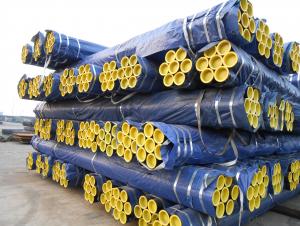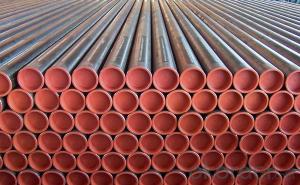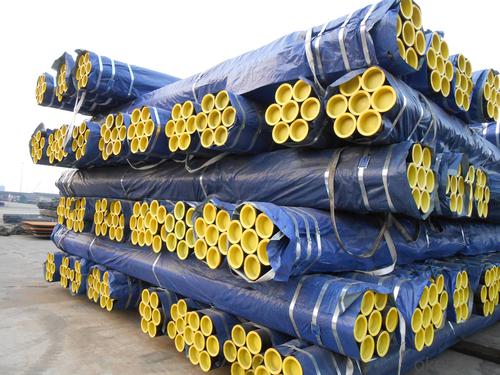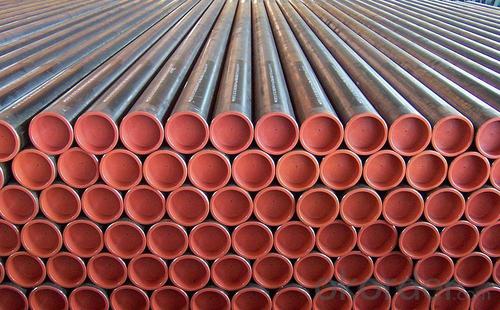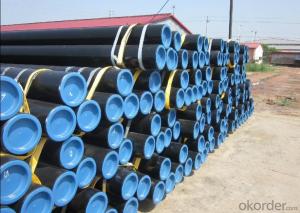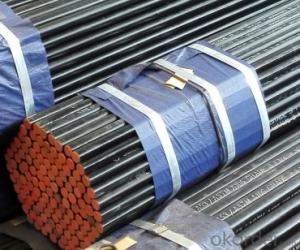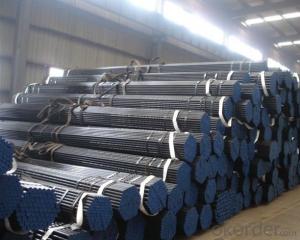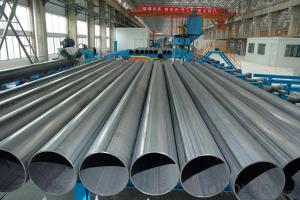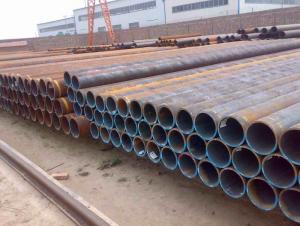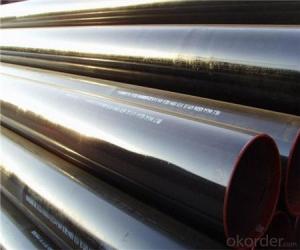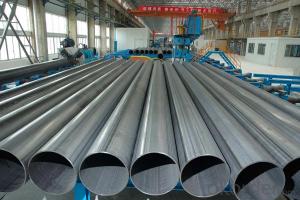HFW STEEL PIPE ASTM A53 GR.B / ASTM A252 GR.2/ASTM A252 GR.3
- Loading Port:
- Tianjin
- Payment Terms:
- TT OR LC
- Min Order Qty:
- 20 m.t.
- Supply Capability:
- 10000 m.t./month
OKorder Service Pledge
OKorder Financial Service
You Might Also Like
Product Name | Longitudinally welded steel pipe / ERW Steel pipe / Carbon steel pipe/ HFW steel pipe | |
Size | OD | 4"-32"/114mm-813mm |
Thickness | 6.5mm-20mm | |
Length | 6m-23m | |
Steel Material | GR.B X42 X52 X56 L245 L290 L360 L415 S245 S290 S360 S390 S355JR S275 | |
Standard | API 5L PLS 1/ASTM A53/ASTM A36/ASTM A500/EN10219/SS400/SS440 | |
Usage | Oil Pipe, Casing Tube, Line Pipe and Fluid (Water, Gas) Transmission | |
Surface | Bared Black Painting, Anti-Corrosion Coating | |
Proctor | Plastic cap | |
Package | Bundles, Bulk | |
Inspection | With Hydraulic Testing, Ultrasonic testing or X-ray Test | |
Certificate | API and ISO9001;2000 | |
Date of Delivery | Less Than 15/20/25/30/40/50/60 Days According To The Quantity | |
Payment: | L/C or T/T | |
Port of Shipment | Xingang,China | |
- Q: DN80 seamless steel tube, what is the standard thickness?
- Commonly used DN80 seamless steel pipe caliber should be 89mm*4mm.
- Q: What is the difference between carbon steel and cast iron pipes?
- The main difference between carbon steel and cast iron pipes lies in their composition and manufacturing processes. Carbon steel pipes are made from an alloy of iron and carbon, with additional elements such as manganese and silicon added for specific properties. They are typically stronger and more durable, making them suitable for high-pressure and heavy-duty applications. On the other hand, cast iron pipes are made by melting iron and pouring it into molds, resulting in a more brittle and less flexible material. Cast iron pipes are commonly used for drainage and sewage systems due to their corrosion resistance and sound insulation properties.
- Q: How many fasteners are there in a ton of steel tubes?
- The fastener generally refers to the intermediate connecting parts connecting two members, in the construction project for external diameter of steel pipe scaffold with 48mm fixation, the fastener is divided into rectangular fastener (cross directional fastener fastener) rotary fastener (universal movable fastener fastener) (a direct docking fastener fastener fastener) etc..
- Q: Are steel pipes suitable for underground chemical transport?
- Steel pipes are widely regarded as appropriate for transporting chemicals underground because of their high strength and durability. They have the ability to endure the pressure and weight of the soil above, rendering them impervious to harm or collapse. Furthermore, steel pipes possess corrosion resistance, which is vital when conveying chemicals that might react with or corrode other substances. They also have the capability to handle a wide range of temperatures, making them suitable for transporting chemicals that necessitate specific temperature conditions. Nevertheless, it is crucial to carefully consider the particular chemical being transported and seek advice from experts in chemical engineering or pipeline design to guarantee the compatibility of the steel pipes with the chemical and the implementation of any necessary safety precautions.
- Q: Can steel pipes be used in extremely cold temperatures?
- Yes, steel pipes can be used in extremely cold temperatures. Steel is known for its strength and durability, making it suitable for various applications, including in extreme cold weather conditions. Steel pipes have a high resistance to low temperatures and can withstand the effects of freezing temperatures without losing their structural integrity. This makes them ideal for use in industries such as oil and gas, where they are exposed to sub-zero temperatures. Additionally, steel pipes can be insulated or coated to provide further protection against the cold and prevent any potential issues, such as freezing or cracking. Overall, steel pipes are a reliable choice for use in extremely cold temperatures.
- Q: How are steel pipes tested for leakage?
- Steel pipes are tested for leakage through various methods, including hydrostatic testing and ultrasonic testing. In hydrostatic testing, the pipes are filled with water under high pressure to check for any leaks or weaknesses in the welds or seams. Ultrasonic testing involves using high-frequency sound waves to detect any defects or cracks in the pipes. Both methods are effective in ensuring the integrity and leak-free performance of steel pipes.
- Q: How are steel pipes used in the transportation of fluids?
- Steel pipes are commonly used in the transportation of fluids due to their durability, strength, and corrosion resistance. They are used in various industries, including oil and gas, water supply, and chemical processing, to transport liquids and gases over long distances. The seamless construction of steel pipes ensures a smooth flow of fluids, reducing friction and pressure loss. Additionally, their ability to withstand high temperatures and pressures makes them ideal for transporting fluids safely and efficiently.
- Q: What is the difference between black steel pipe and galvanized steel pipe?
- The main difference between black steel pipe and galvanized steel pipe lies in their coating. Black steel pipe is untreated and has a dark, matte appearance, while galvanized steel pipe is coated with a layer of zinc to prevent rusting and has a silver, shiny appearance. This coating makes galvanized steel pipes more durable and suitable for outdoor use, while black steel pipes are commonly used for indoor plumbing and gas lines.
- Q: How are steel pipes repaired if they develop leaks?
- Steel pipes can be repaired if they develop leaks through various methods such as welding, clamping, or using epoxy compounds. The specific repair technique depends on the size and location of the leak as well as the type of pipe, and it is typically carried out by trained professionals with the necessary equipment and expertise.
- Q: What are the different types of steel pipe nipples?
- There are various types of steel pipe nipples, including standard, close, barrel, hexagonal, and welding nipple. Each type serves a specific purpose and has unique characteristics.
Send your message to us
HFW STEEL PIPE ASTM A53 GR.B / ASTM A252 GR.2/ASTM A252 GR.3
- Loading Port:
- Tianjin
- Payment Terms:
- TT OR LC
- Min Order Qty:
- 20 m.t.
- Supply Capability:
- 10000 m.t./month
OKorder Service Pledge
OKorder Financial Service
Similar products
Hot products
Hot Searches
Related keywords
